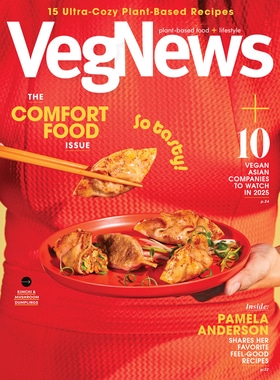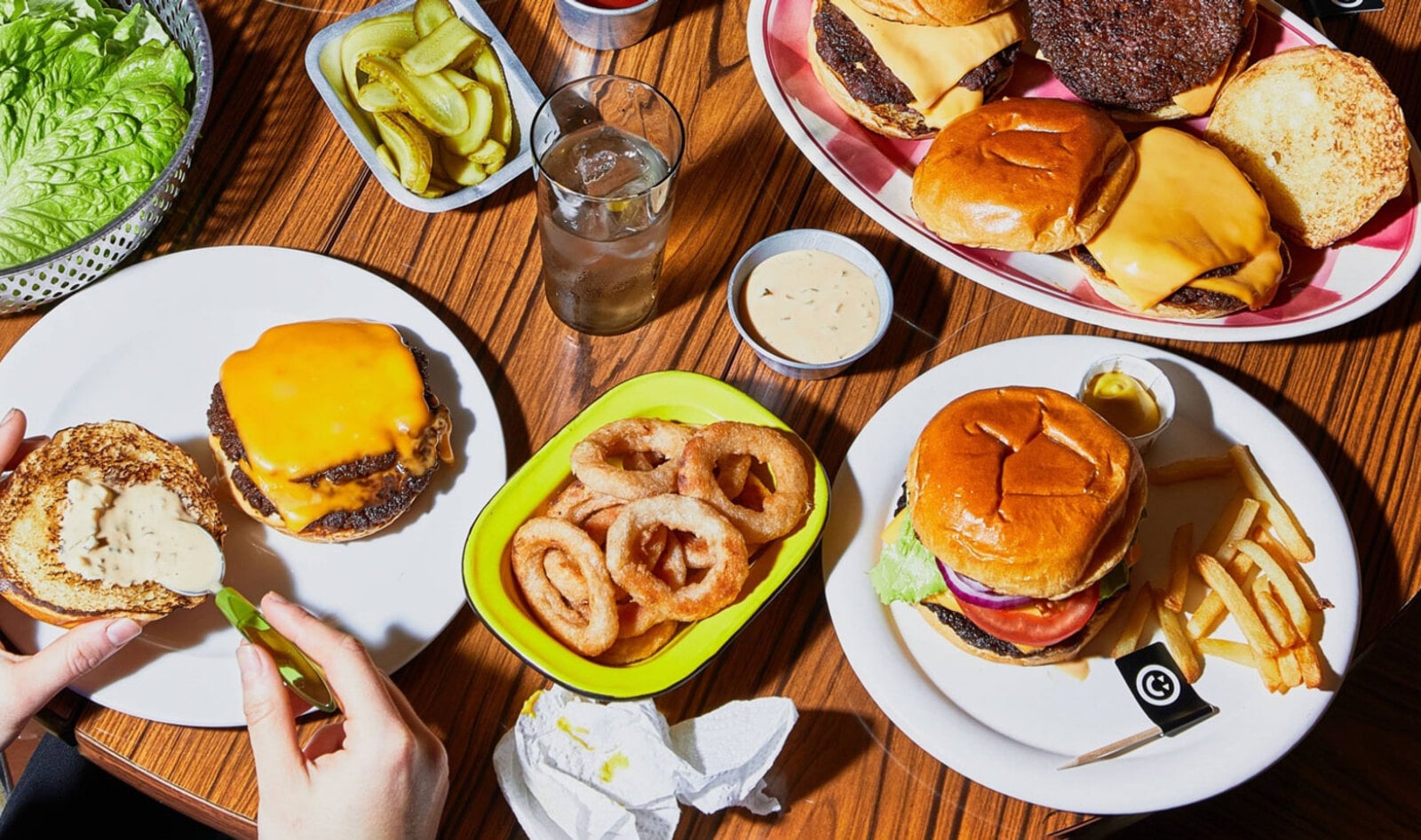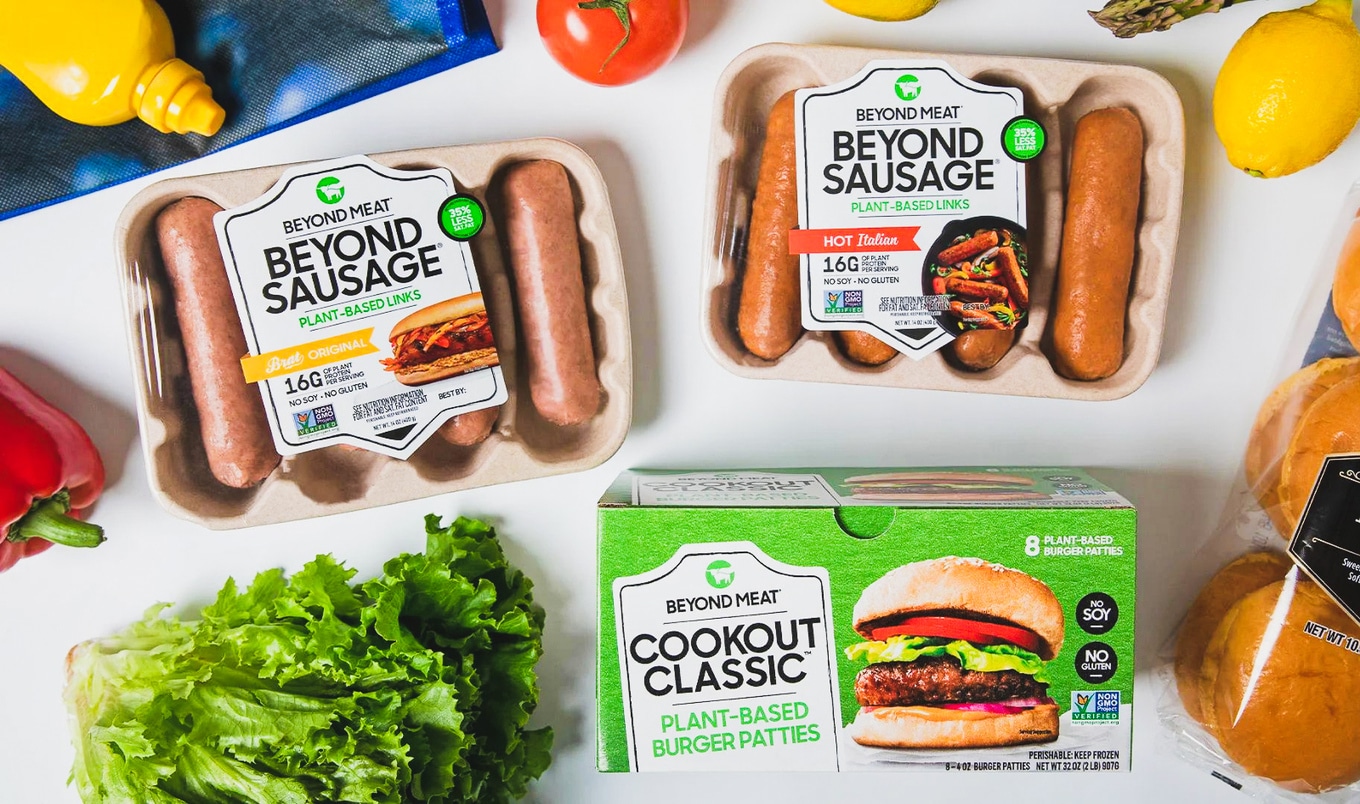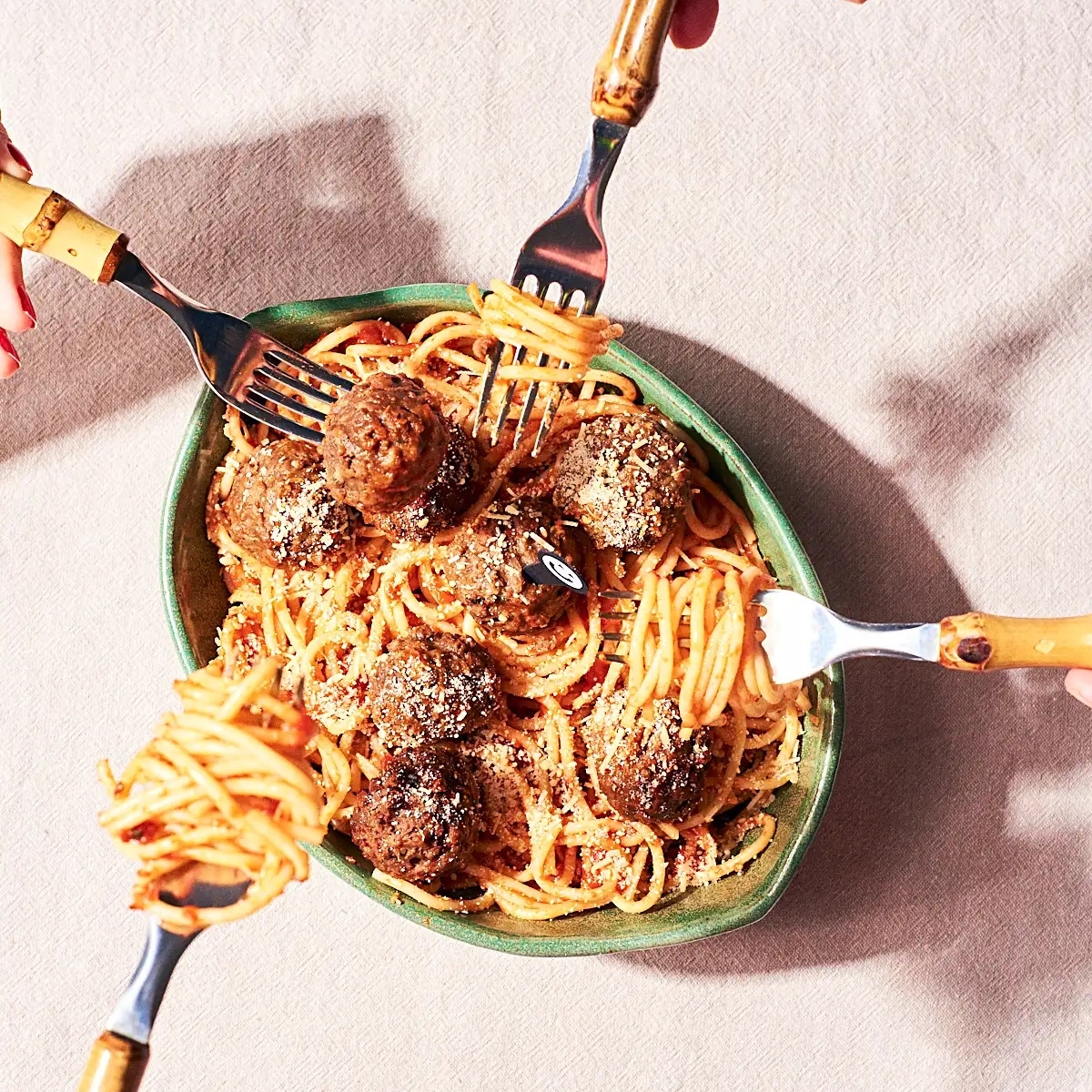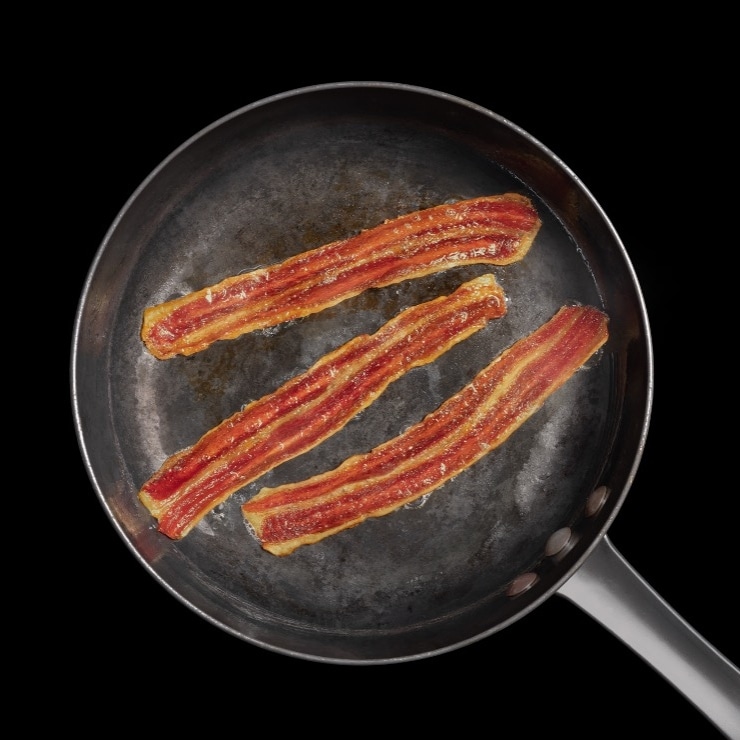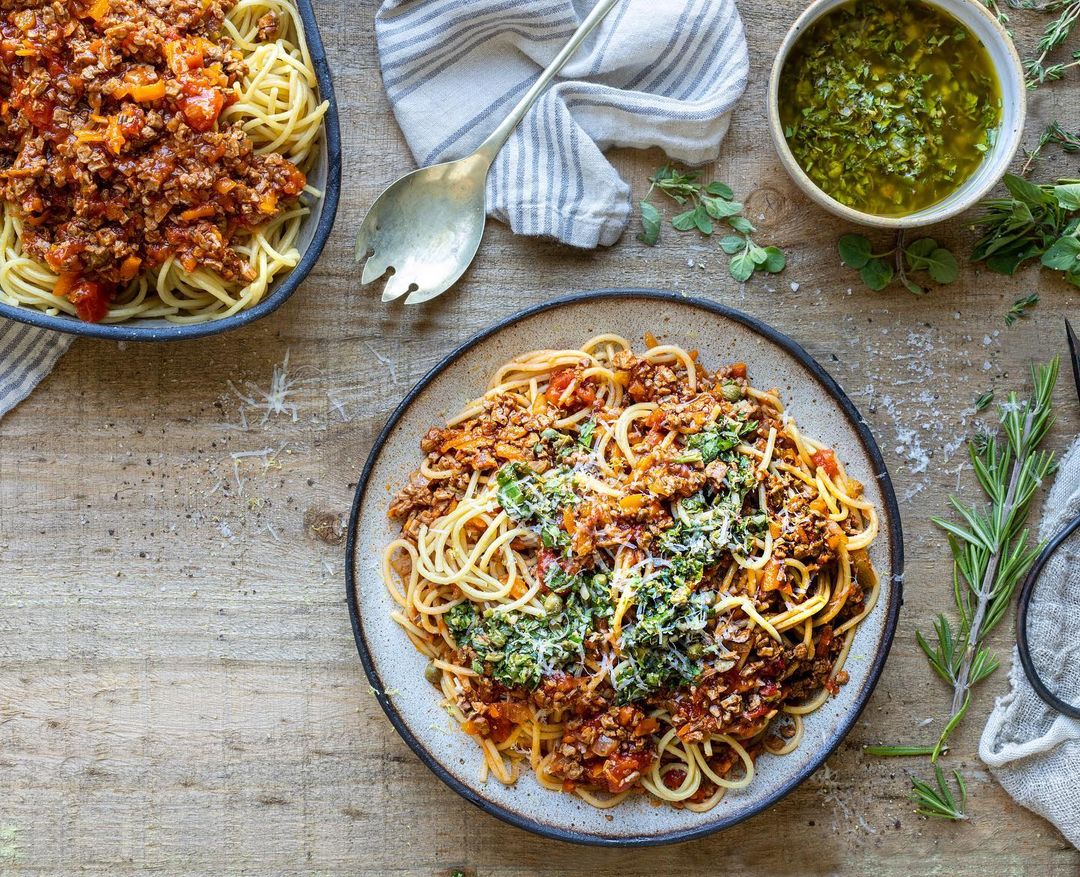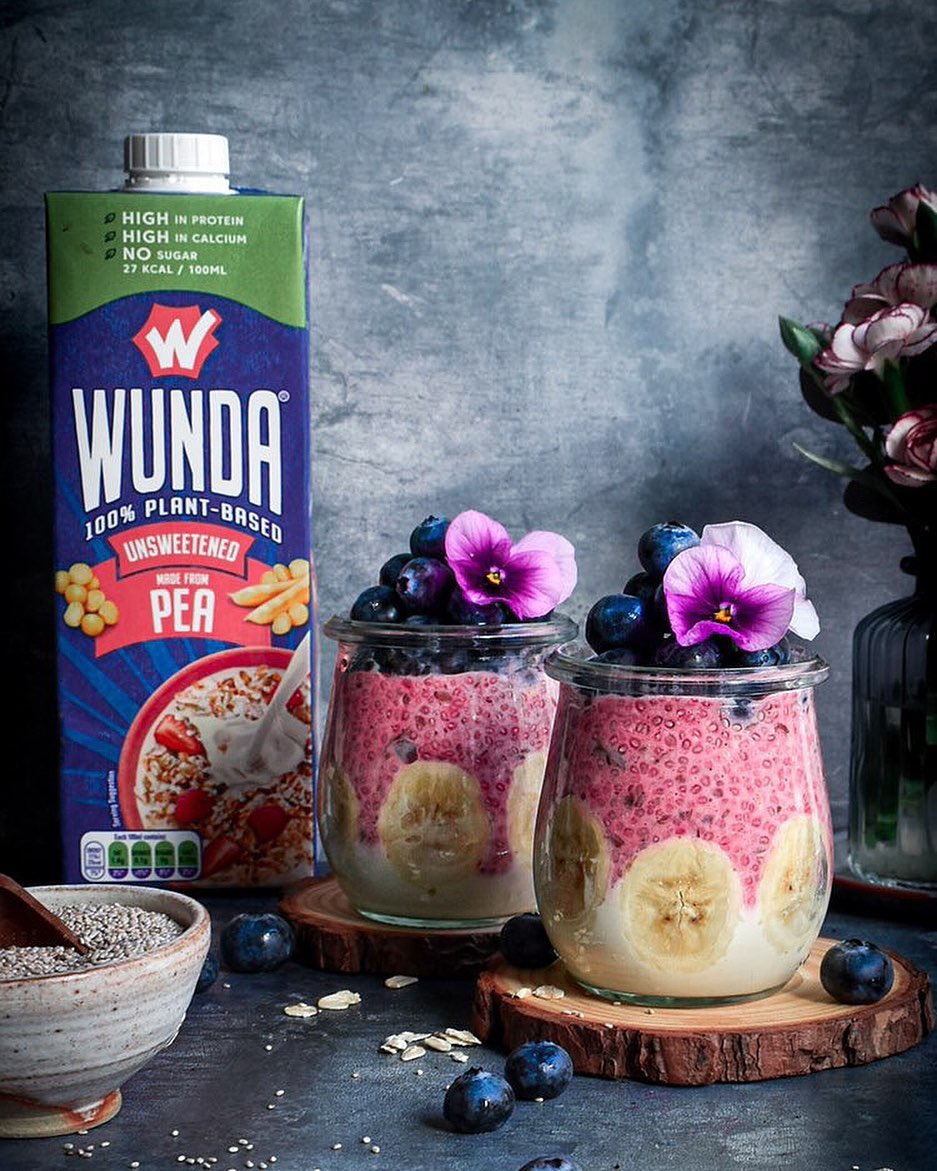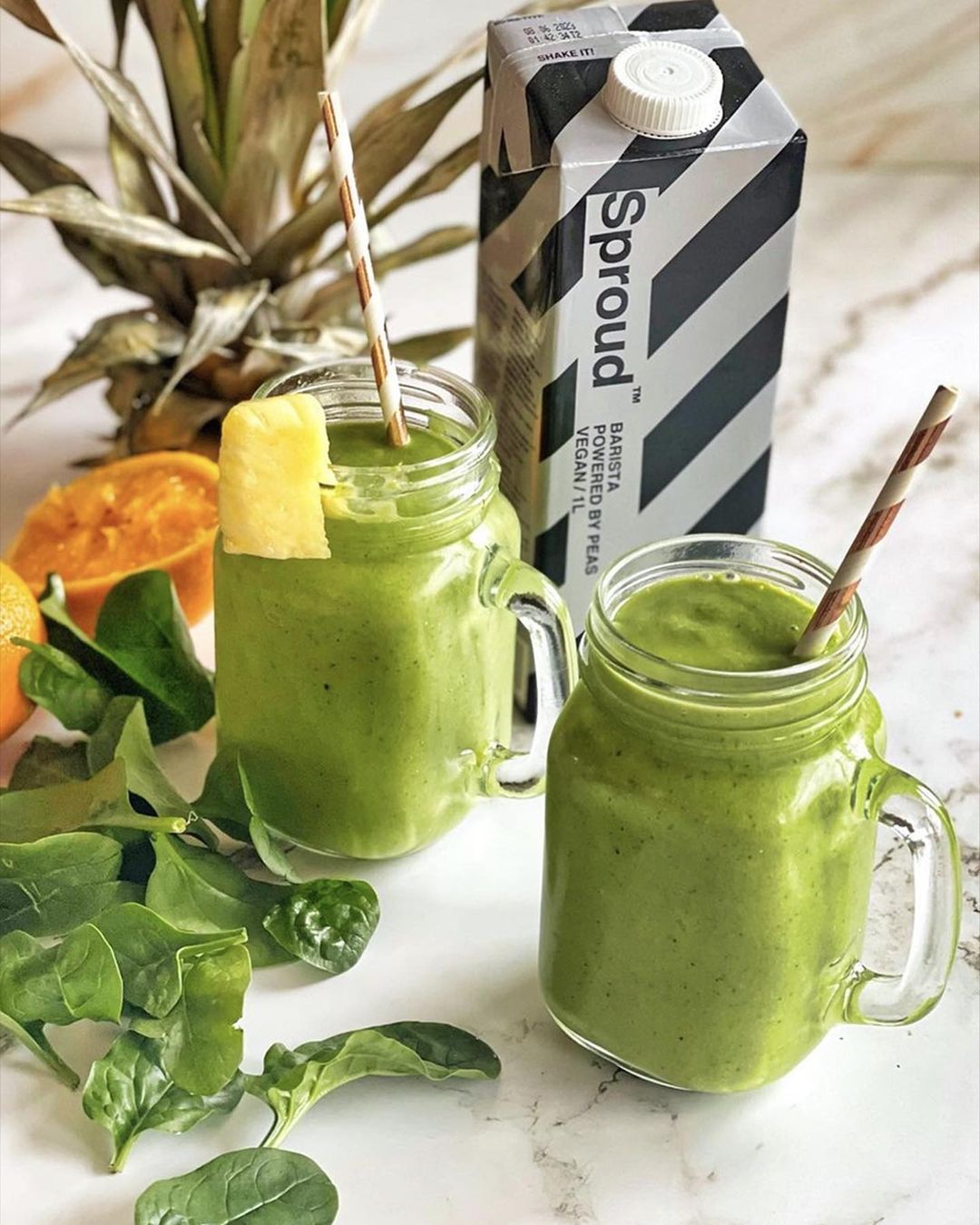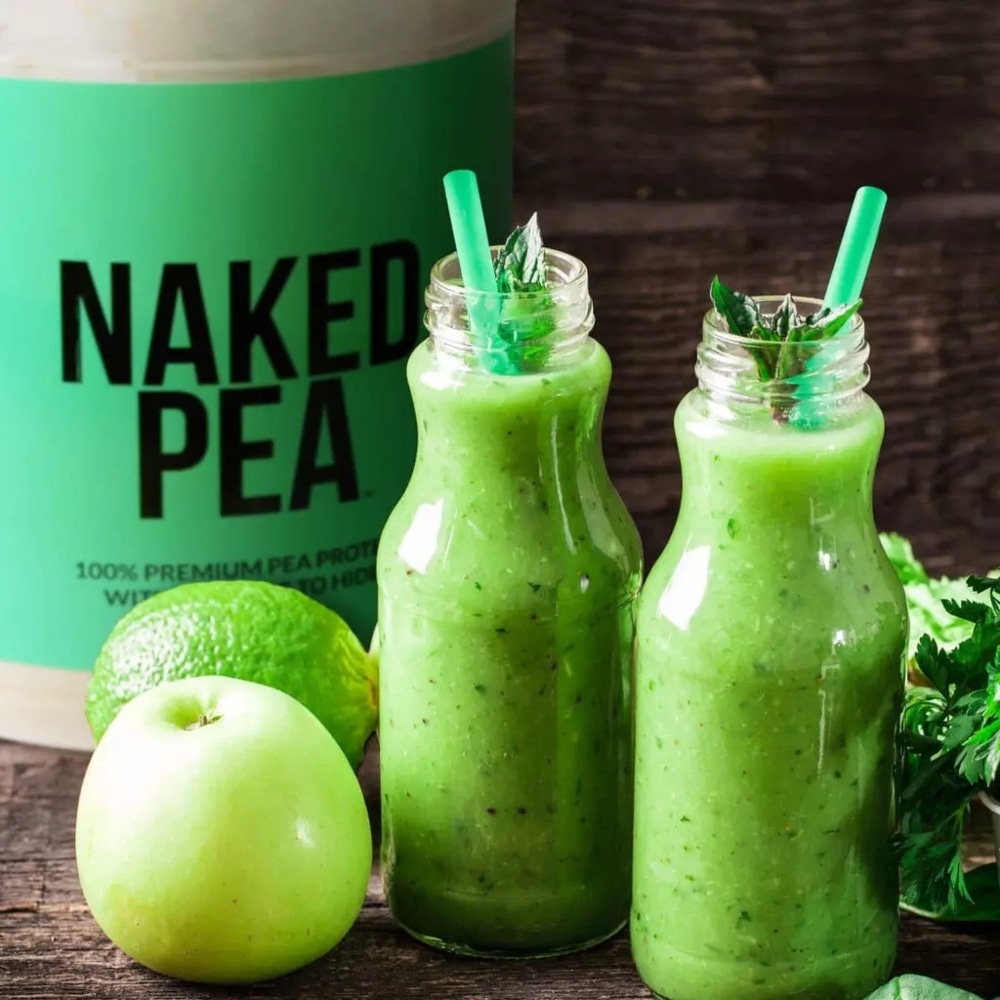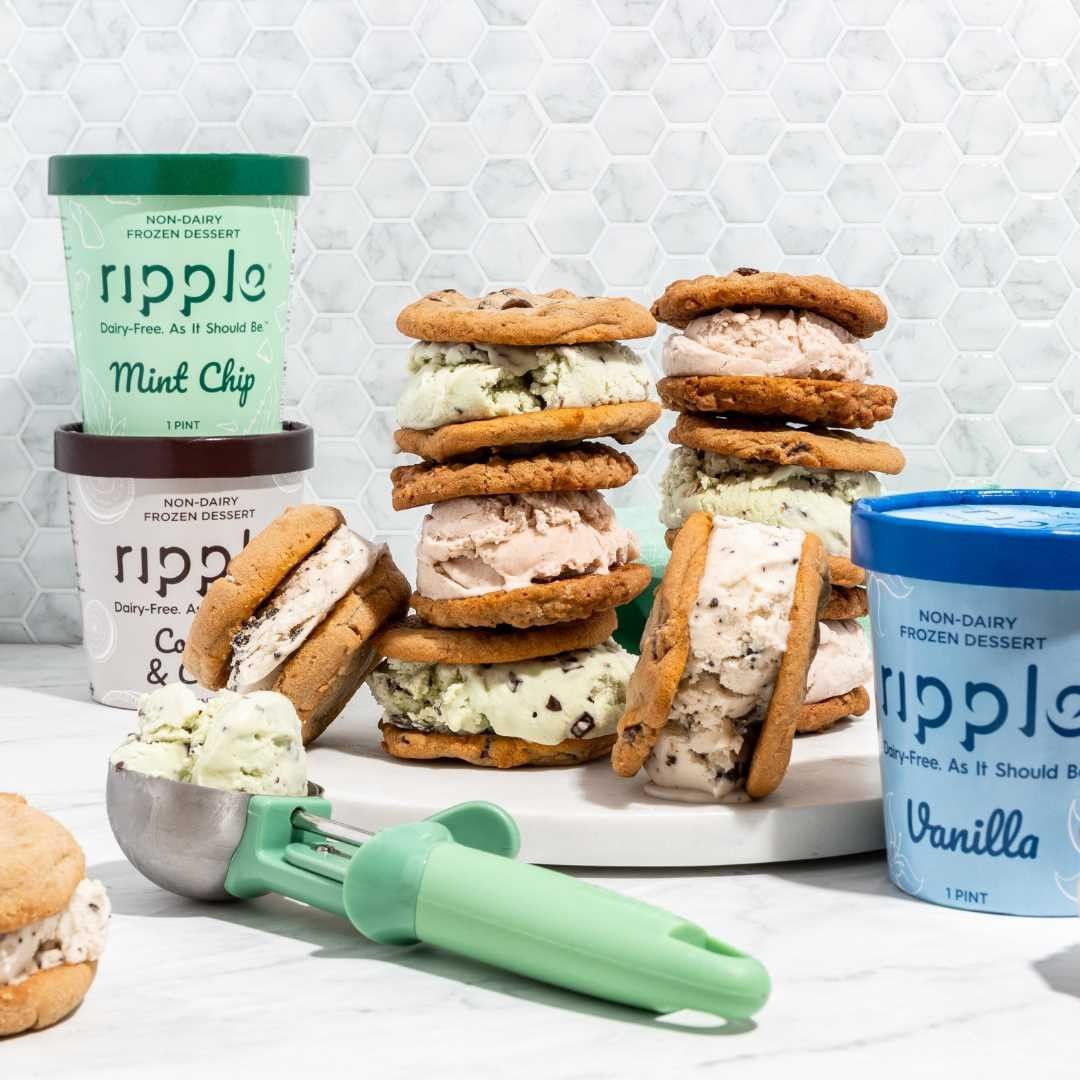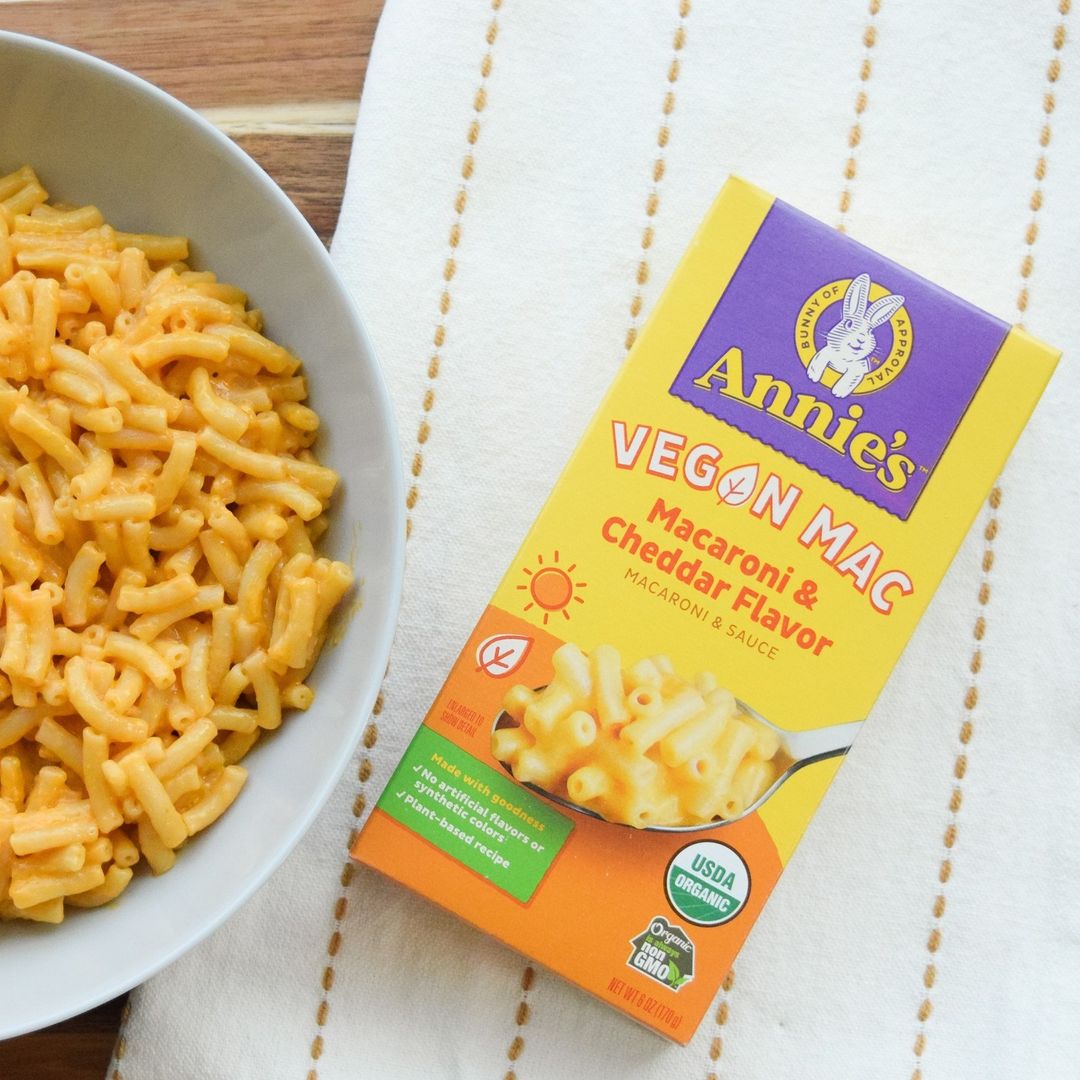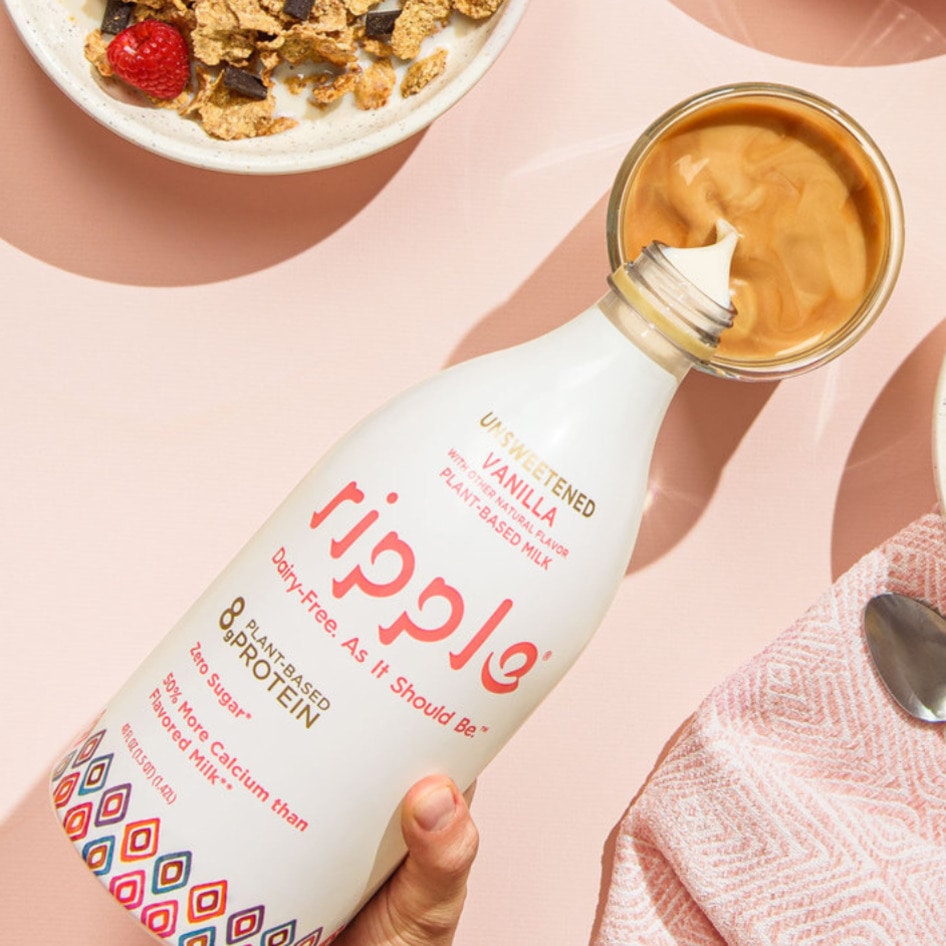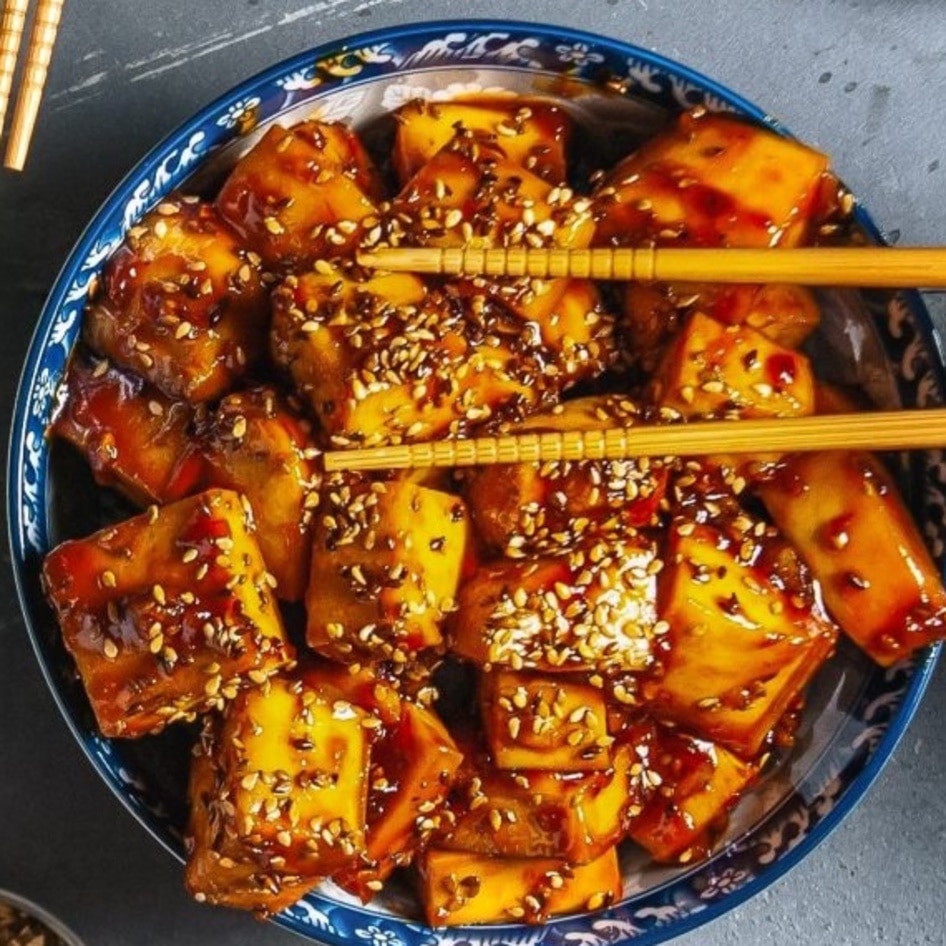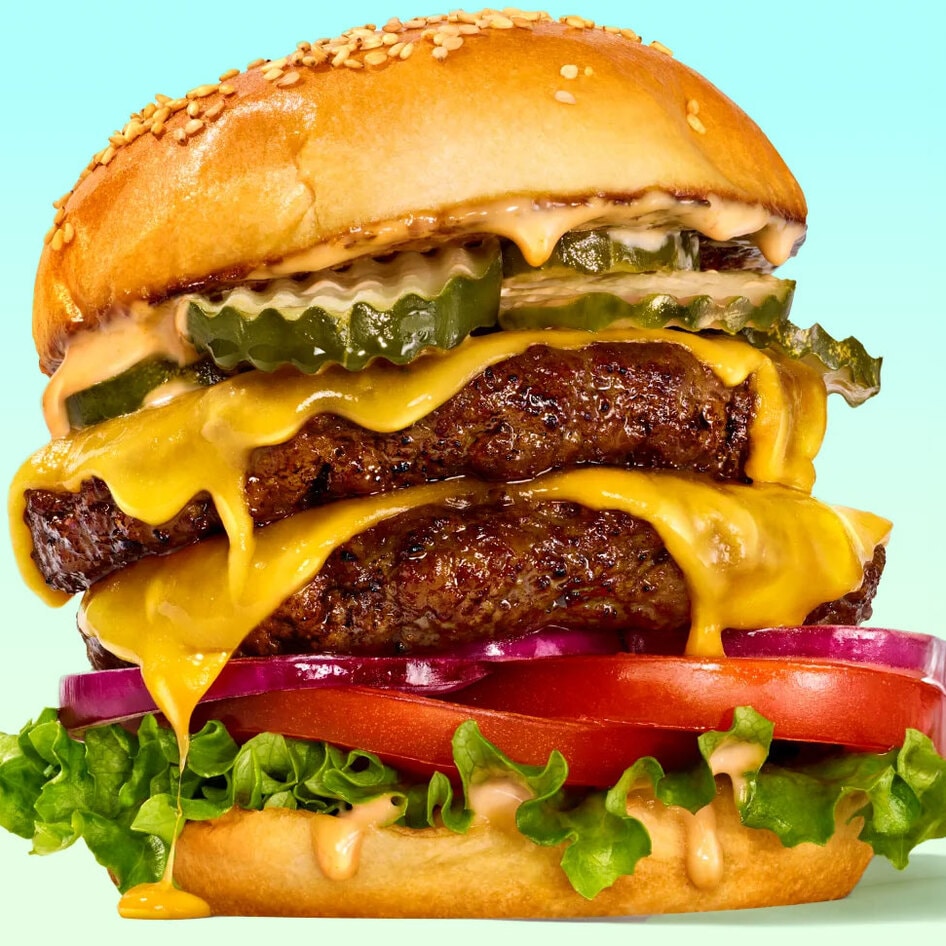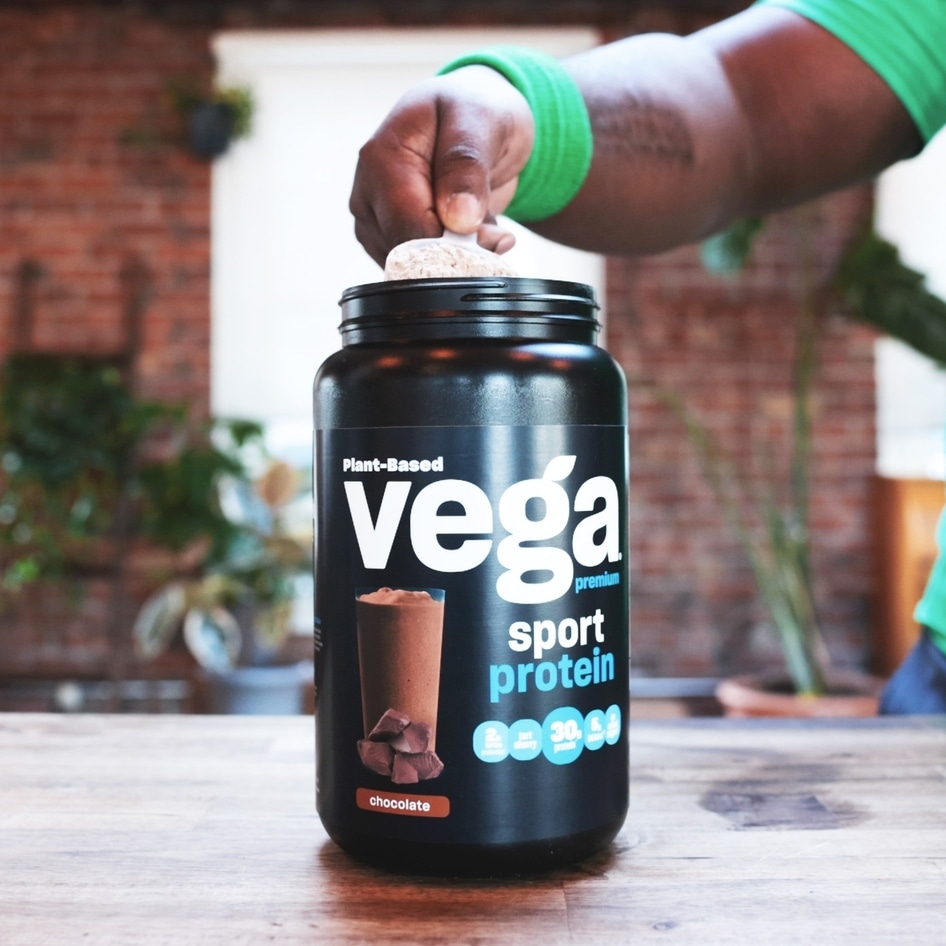According to prehistoric cave paintings, humans have been eating meat from cattle for quite some time. Back then, it wasn’t cows, but aurochs—the now-extinct ox species is commonly regarded as the wild ancestor of modern cattle. Today, the appetite for cattle meat is still strong. In fact, research suggests that the average American eats around 60 beef burgers per year.
But there’s a big problem with all this beef consumption. First, it requires the slaughter of millions of cows, most of whom are raised on industrialized factory farms. And secondly, it’s pretty bad for the planet. Scratch that. It’s very bad for the planet. When cows burp, they produce a potent greenhouse gas called methane, which, for the first 20 years it’s in the atmosphere, has more than 80 times the warming power of carbon dioxide. Throughout their lifetime, just one cow is responsible for around 220 pounds of methane emissions.
So, to satisfy consumer demand for beef, plant-based innovators needed to come up with a solution. For years, soy protein was the dominant ingredient for producing products that look and taste similar to meat. But now, many brands, including plant-based giant Beyond Meat, are looking to the humble pea. Here’s why, when compared to meat, pea protein is the more climate-friendly ingredient choice. Plus, we’ve got all the information on its nutritional value, too, as well as all of its different uses (it’s not just good for vegan meat, it’s also being used in vegan dairy products).
What is pea protein?
When most of us think of peas, we imagine green peas often found in cans in the grocery store. Or if you’re lucky enough to have a garden, growing in lush green pods in the vegetable patch. But most pea protein isn’t derived from these types of peas. Instead, it comes from yellow split peas (also called field peas). They’re part of the same family as garden peas, but, as the name suggests, they’re more yellow and they’re more starchy.
There are a few different types of pea protein. The type found in a vegan meat product, for example, is usually called textured pea protein. Similar to meat, this type has a more fibrous structure and appearance. But there’s also pea protein isolate and pea protein concentrate, both of which you’re more likely to find in protein powders.
 Beyond Meat
Beyond Meat
Pea protein nutrition
Pea protein is, clearly, a good source of protein. “One cup of yellow peas on their own contains about 8 grams of protein. But one scoop of pea protein isolate—the protein powder you’d buy at a store—contains between 15 and 20 grams of protein for every 100 calories,” Anthony DiMarino, RD, told Cleveland Health. But it also contains fiber, carbohydrates, and iron.
Research suggests pea protein also contains antioxidants, and, unlike soy, it’s considered to be hypoallergenic to many. This means that it’s unlikely to cause an allergic reaction—although some studies have suggested that it may cause a reaction in some with peanut allergies, as the legumes are closely related.
Pea protein vs meat
Pea protein is not only a good source of nutrition (and rivals meat in protein content), but it’s also a climate-friendly crop. In fact, according to plant-based ingredient specialist Roquette, bovine meat requires four times the amount of water as peas and has five times the impact on land use. “Peas simply yield more protein per acre,” it notes.
Plus, unlike animal agriculture, which is associated with soil erosion, peas actually help to regenerate the soil. That’s because they’re a nitrogen-fixing crop, which essentially means they add nitrogen to the soil as they grow. This helps to improve the health of the soil, as well as the health of any crops grown after it on the same land.
Pea protein taste
By itself, pea protein’s taste has been described as “grassy” or “chalky,” but, when you’re consuming pea protein, it’s unlikely you’re consuming it dry. When added to a shake, pea protein makes for a smoother, thicker texture. And, as described earlier, when used in vegan meat products, it offers a fibrous texture, which is similar to meat.
Pea protein uses
Pea protein can be used in many different ways. You can find it in powder form, which is usually added to protein shakes, or in vegan meat. Plus, it’s also been used in plant-based milk, cheese, and ice cream products. Here are 10 brands that showcase just how versatile this simple legume can be.
Pea protein brands
1 Beyond Meat
When Beyond Meat was first emerging on the market, it knew that its customer base wanted to avoid more soy products. “The thing that recommends peas most strongly is what it’s not—and it’s not soy,” CEO Ethan Brown told The Verge. “The consumer told us very early that they wanted to avoid having additional soy in their diet.” While it’s seeking to diversify its protein portfolio (potentially using other legumes and seeds like lentils and sunflowers), peas are still a key ingredient in its products, including its signature Beyond Burger.
find it here
2 Future Farm
Founded in Brazil, Future Farm has taken the vegan meat world by storm in the last few years. By 2021, its business was valued at more than $400 million. It’s no surprise, really. Its product portfolio replaces meat seamlessly (and fish—one of its standout products is its Future Tuna) thanks to a blend of soy and pea protein.
find it here
3 This
For around one and a half years, UK brand This focused solely on creating plant-based meat products that would make consumers question whether they were eating real meat, and it succeeded. Now, its product portfolio includes everything from its ultra-convincing Isn’t Bacon Streaky Rashers to its Isn’t Chicken Pieces (which, if you’re in the UK, you can also find in WHSmith grab-and-go sandwiches). One of its key ingredients? Pea protein isolate.
find it here
4 Omnifoods
Since its launch in 2018, Omnifoods has gone from strength to strength. You can find its much-coveted OmniPork in restaurants around the world, and its OmniPork Luncheon meat is even on McDonald’s menus in Hong Kong. Its proprietary protein blend doesn’t just feature peas, but also soy, shiitake mushrooms, and rice.
find it here
5 Fry’s
Fry’s is South Africa’s leading plant-based meat brand for a reason. Craving chicken? It’s got strips, fillets, nuggets, and popcorn-style bites. If you want sausage rolls, it has three different vegan varieties. And if you want soy-free, pea protein-packed mince, it’s got you covered there, too.
find it here
6 Wunda
In 2021, Nestlé burst onto the plant-based milk scene with Wunda, a plant-based brand that specializes, specifically, in pea milk. The concept might seem a little strange at first, but Wunda’s beverages are creamy, high in fiber and protein, and versatile. “Its great neutral taste, the ability to use it for different applications, and the fact that it is carbon-neutral make it an ideal plant-based alternative to milk,” said Nestlé’s Chief Technology Officer Stefan Palzer.
find it here
7 Sproud
Nestlé isn’t alone in the pea milk world. In fact, before Wunda, there was Sproud. The Swedish brand was founded in 2018 and specializes in creamy, versatile, pea milk beverages, including Salted Caramel Iced Coffee and chocolate milk.
find it here
8 Naked Nutrition
If you’re on the hunt for pea protein powder, Naked Nutrition has got you. Called Naked Pea, its powder is made with just one ingredient: peas. Yep, there’s nothing else in there. No additives or sweeteners, just peas. And they’ve all been sourced sustainably from farms in the US and Canada.
find it here
9 Ripple
There are some interesting ice cream flavors out there (ever heard of Thai Chili Peanut?!) but pea? Well, that just sounds more than a little bit unappealing. But here’s why you shouldn’t be put off by Ripple’s base frozen dessert ingredient: you can’t taste it all. Instead, it just makes the texture even creamier. Got a sweet tooth? Try the brand’s Cookies & Crème flavor.
find it here
10 Annie’s
If you thought you’d miss out on comforting mac and cheese when you went vegan, think again. Iconic organic mac and cheese brand Annie’s has several plant-based options, including its Vegan Cheddar Flavor Mac, which features organic pea protein.
find it here
For more on vegan ingredients, read:
JUMP TO ... Latest News | Recipes | Guides | Health | Subscribe
Here at VegNews, we live and breathe the plant-based lifestyle, and only recommend products we feel make our lives amazing. Occasionally, articles may include shopping links where we might earn a small commission, but in no way does this effect the editorial integrity of VegNews.
